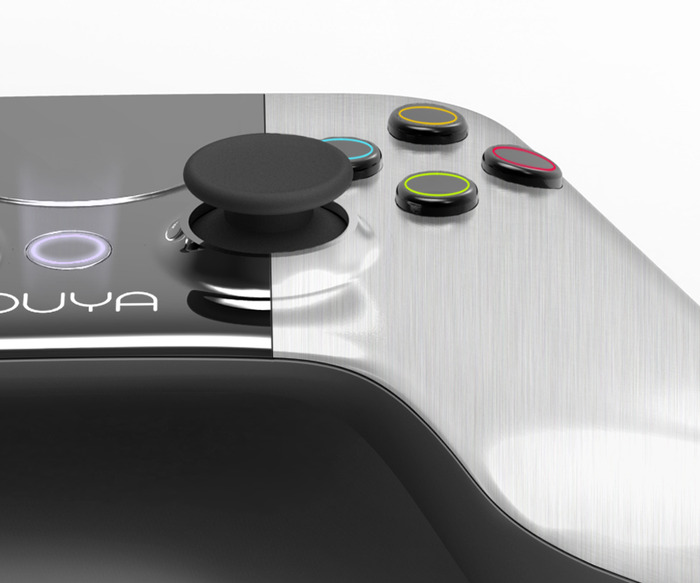Ouya Team Now Working With Nvidia
The Ouya team is now working with Nvidia to optimize the Android console for Tegra 3.
Get Tom's Hardware's best news and in-depth reviews, straight to your inbox.
You are now subscribed
Your newsletter sign-up was successful
As of Monday morning, the Ouya Kickstarter project had reeled in 38,285 backers who pledged $4,888,038 USD, far exceeding the original goal of $950,000. Now sitting on a potential mountain of cash (with more likely to come), the team is currently focused on the task of getting the $99 product out to market.
The latest update reports that the team is working with Nvidia to streamline the Ouya design for the Tegra 3 SoC. "We spent yesterday with Nvidia talking about our chips," the update reads. "The team is great and their support has been incredible. They're working side by side with us, and they'll help us maximize the performance of the Tegra 3 chipset we're using."
The team also mentions that they may grant developers even earlier access than previously planned. "We had a crazy idea -- if folks are interested -- we might consider a reward that would allow devs to start working from the raw circuit board at an even earlier date, allowing them to get a head start on development. And maybe we'd add one more level that gives you just the software -- no early console."
"Obviously, if you have the Android SDK, you know most of what you need to know -- we'll just need to add in a few elements specific to Ouya -- things like assets for promoting on the console and our payments API," the team adds.
Based on the Kickstarter numbers, five backers have pledged $10,000 or more. These people will have their user name and backer number engraved into the entire first production run of consoles. They'll also be invited to attend a private pre-launch dinner party which will also include an inner circle of game developers and designers.
As for the console, the team said it will be easy to root, and easy to open, as it uses standard screws. Hardware hackers can create their own peripherals, and connect via USB or Bluetooth. The actual console specs include Nvidia's quad-core Tegra 3 SoC, 1 GB of RAM, 8 GB of internal storage, HDMI output (although it needs standard video out too), 802.11 b/g/n connectivity, Bluetooth LE 4.0, and a USB 2.0 port.
"Because OUYA is based on Android, any app developer could publish their Android app to OUYA. The possibilities are limitless, and conversations with potential partners are already underway," the team states.
Get Tom's Hardware's best news and in-depth reviews, straight to your inbox.

Kevin Parrish has over a decade of experience as a writer, editor, and product tester. His work focused on computer hardware, networking equipment, smartphones, tablets, gaming consoles, and other internet-connected devices. His work has appeared in Tom's Hardware, Tom's Guide, Maximum PC, Digital Trends, Android Authority, How-To Geek, Lifewire, and others.
-
Osmin By the time OUYA comes out, the NVidia Tegra-4 should be out. Already underpowered compared to the XBOX and PS3, will the masses embrace cell phone games? If OUYA is supposed to get 30% profit on each game sold from developers, couldn’t they subsidize better hardware?Reply -
shin0bi272 JAWAC (just another weak a$$ console) to compete with sony and microsoft. I think I'll stick with my pc thanks. Though if you'd allow keyboard and mouse control (stupid thumb sticks) and the ability to upgrade the guts of the thing (crappy dx9 ports anyone?) I may consider a purchase.Reply -
tntom To everyone above. This is based on A-N-D-R-O-I-D! I other words it is not a closed platform and the hardware can be upgraded at any time like a PC. I other words when Tegra 4 comes out....No!...Problem upgrading the system. And don't think there will not be all kinds of mods on the market. This is an open platform so modders do not have to worry about licensing their HW. I would not count out big titles coming to this either.Reply -
esrever not like you can open the box to upgrade so you'd have a box that you throw away when a new one comes out?Reply -
loops This would be cool for a kid you did not want on your PC and for one that does not have a PS/360. I like that you could travel with it. It would rock if you could connect it to a cheap tablet like the Fire. It seems geared to the TV.Reply -
lahawzel tntomTo everyone above. This is based on A-N-D-R-O-I-D! I other words it is not a closed platform and the hardware can be upgraded at any time like a PC. I other words when Tegra 4 comes out....No!...Problem upgrading the system. And don't think there will not be all kinds of mods on the market. This is an open platform so modders do not have to worry about licensing their HW. I would not count out big titles coming to this either.In essence, the selling points for this console are already offered by a PC, minus the $99 part.Reply
While I find it impressive that the kickstarter project raised lots of funding so quickly, I'm going to pass on the tempting offer to throw in $100 so I can play angry birds on my TV. -
marthisdil shqtthWii is already selling for $130 with a game.And the Ouya will likely STILL have better graphics....and?Reply
